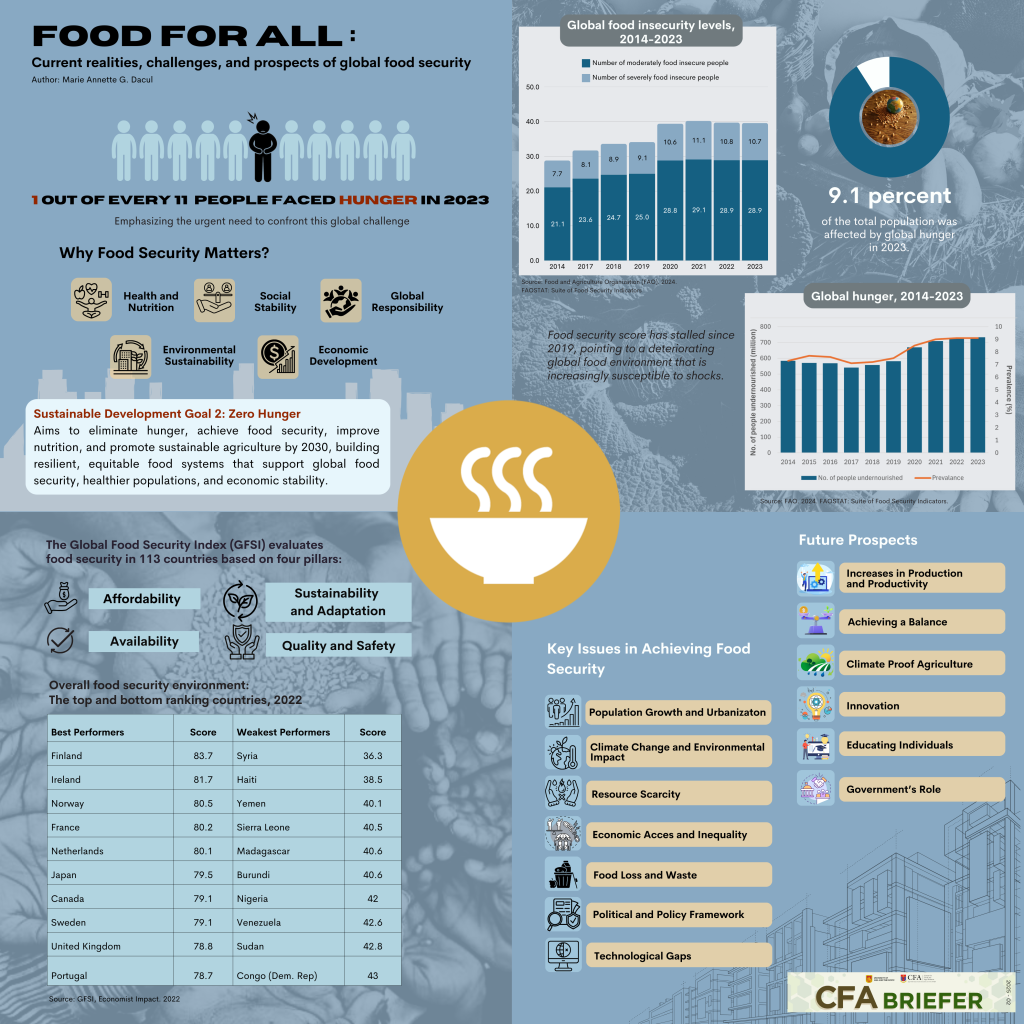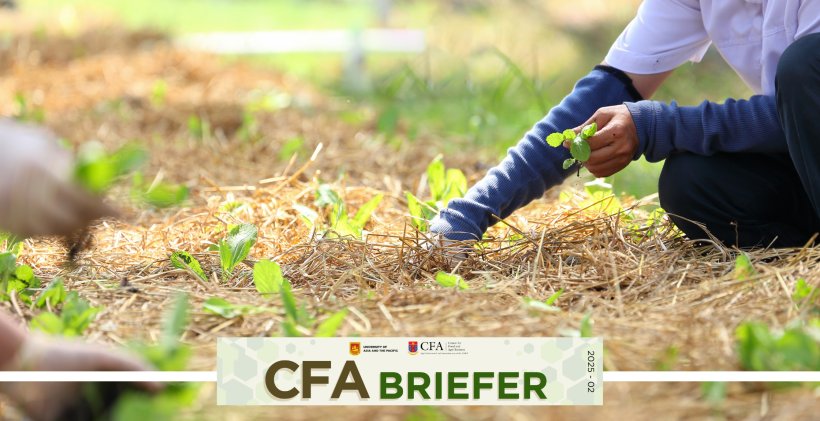This article explores global food security, highlighting key challenges and opportunities in food accessibility, sustainability, and resilience. It examines factors affecting production and distribution, addresses pressing issues in food systems, and offers insights into strategies for a more secure and sustainable future.
by Marie Annette Dacul, Executive Director, Center for Food and Agri Business, UA&P
FOOD SECURITY IS AN ISSUE that touches every part of the world, impacting lives, economies, and communities. Safe and nutritious food is an essential human right, yet millions globally still suffer from food insecurity. In 2023, one out of every 11 people went hungry[1], emphasizing the urgent need to confront this global challenge.
Food security is crucial as it promotes individual health, economic strength, social stability, and environmental sustainability. Having access to adequate and nutritious food is essential for well-being, helping to combat malnutrition and reduce illness. Economically, food security improves workforce productivity and stimulates growth, while also reducing the likelihood of social unrest caused by hunger and scarcity. Additionally, it encourages sustainable farming practices that conserve natural resources and protect biodiversity. Therefore, ensuring food security is key to building resilient communities and securing a sustainable future for people everywhere.
The paper will discuss the global food security situation, key issues in achieving food security and prospects.


